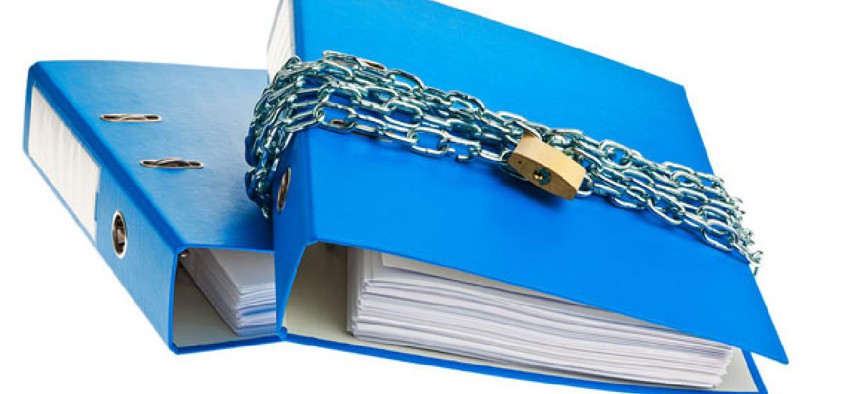
Lisa S./Shutterstock.com
Agencies keep too many documents classified, president told
Declassification board recommends new White House-led panel to modernize procedures.
Agencies charged with protecting national security are using a declassification system that is out of date and unable to keep up with the expanding volume of government documents, a presidentially appointed board has reported.
The Public Interest Declassification Board, a group of military veterans, former officials and academics set up to implement a 2009 transparency directive from President Obama, in late November sent the president a set of 14 recommendations designed to modernize agency procedures while continuing to protect vital secrets. The group’s report was made public Thursday.
“We believe the current classification and declassification systems are outdated and incapable of dealing adequately with the large volumes of classified information generated in an era of digital communications and information systems,” wrote committee chairman Nancy Soderberg, a Clinton administration National Security Council classification specialist now running the nonprofit Connect U.S. Fund, in a cover letter to Obama. “Overcoming entrenched practices that no longer serve the purpose of protecting our national security will prove difficult. We believe it will require a White House-led steering committee to drive reform, led by a chair that is carefully selected and appointed with specific authorities that you grant.”
Released at a public meeting at the National Archives and Records Administration, the report recommends:
- that the president appoint a White House-led Security Classification Reform Steering Committee to oversee implementation of the board’s recommendations to modernize the current system of classification and declassification;
- that classification be simplified and rationalized by placing national security information in only two classification categories;
- and that the threshold for classifying in the two-tiered system be adjusted to align the level of protection with the level of harm anticipated in the event of unauthorized release.
“Agencies should recognize in policy and practice a `safe harbor’ protection for clas¬sifiers who adhere to rigorous risk management practices and determine in good faith to classify information at a lower level or not at all,” the report said. “Classifiers face incentives that bias their decisions toward classification. They should be encouraged and rewarded -- and at least not pun¬ished -- for good-faith decisions that certain informa¬tion should remain unclassified.”
Agencies most affected include the Defense, State and Energy departments as well as the CIA.
“Some of the board’s specific recommendations are naturally subject to debate,” wrote Steven Aftergood, director of the Project on Government Secrecy at the Federation of American Scientists, in his blog. “A proposal to reduce the current three-level classification system to two levels was previously recommended… in 1994 but was ultimately abandoned as unworkable. A proposal to base classification decisions on the degree of protection required for information rather than on the damage that might result from its disclosure is a subtle change that may be worth considering,” he said.
“But these are quibbles in comparison to the principal PIDB recommendation in favor of presidential leadership of secrecy reform, and establishment of a presidentially led steering committee to execute needed changes throughout the government.”
(Image via Lisa S./Shutterstock.com)







